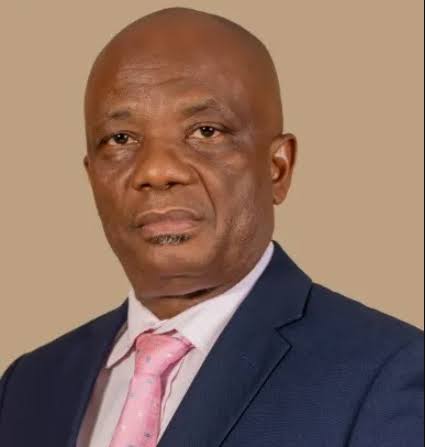The Secretary-General of the Memorandum of Understanding on Port State Control for West and Central African Region (ABUJA MOU), Capt Sunday Umoren, in this interview with SAMSON ECHENIM, speaks on the commitment of the centre to developing maritime capacity in the region.
How would you describe the activities of the Abuja MOU in 2024 in relation to the developmental needs of the maritime sector in Africa?
We have been doing a lot since I took over as the Secretary General of Abuja MOU and since the beginning of this year. It has been a very busy year for us and I think time will not allow us to expand more, but I can tell you that within the period, we have gotten three member states to become full members. As you know, Abuja MOU covers the West and Central African region with 22 countries. So as of today, we have 20 countries as members of Abuja MOU, that is countries in the region which have signed the letter of ascension to become full members. When I became the Secretary General, we had 16 members, and I have moved the number to 20.
The countries that joined recently are Guinea, Cameroon, DRC (Congo) and one other country. We still have two left, Namibia and Arab Republic of Mauritania, which I’m sure that before the middle of next year I’ll get them all in. And we have had several trainings. We have collaborated with IMO for trainings of the DGs. We had a training for all the DGs in the region in Lagos. We have had trainings also on ethical practices for all Port State Control Officers. We just completed our annual program, what we call the Port State Control Committee Meeting in Congo Brazzaville two weeks ago, which was w3ll attended, and also the Ministerial Conference with all the ministers attending.
We also had mentorship scheme for countries that are struggling to conduct inspection. They got mentored by countries that are doing very well last year, I think in October, Port State Control Officers from Sierra Leone came to Nigeria to be mentored by the Nigerian Port State Control Officers. We also have a training package for port authorities. We are called Port State, so port is our state. So, we need to collaborate with port authorities. We also have a training package ready for port authorities in the region, but that’s yet to be kick off. We are waiting. We are finalizing discussion with some of the countries, and that will happen as soon as possible.
With all that the Abuja MOU has done these few years, are there high hopes of having Nigeria maintaining Category C in the International Maritime Organisation (IMO) Council?
Abuja MOU is actually a regional organization. It’s not a national organisation. Yes, Nigeria is growing. However, part of the things the IMO auditors will look at, is how much your country has been participating in the MOU activities. We don’t get involved in nomination into any of the categories. However, a country’s collaboration with us is an added advantage. Nigeria has hosted Abuja MOU. Nigeria has supported us and the current Minister of Marine and Blue Economy has been very supportive. We were at 13th Port State Control Committee meeting in Abdijan and that was his first assignment as a minister outside the country. He has consistently been supportive. And so those are processes, the toppings that can actually booster your case as a country that, yes, we are hosting the MOU and giving them all the support they need. And Nigeria has been hosting a lot of training programs. We still have, like two training programs coming up this year for Accident Investigation which Nigeria will graciously host. I have met with the new DG and the Permanent Secretary and they’re all very supportive and it’s a plus for Nigeria.
With the creation of the ministry of Marine and Blue Economy, maritime stakeholders expect a quicker development of the sector. How will you appraise the minister regarding his progress and impact in the maritime sector?
You have to look at the peculiarity of situation as a regional body, as a secretary general of the regional organization, we don’t critique our member states. However, like I said, the minister is the vice chairman of the Abuja MOU and he has been very keen on port control activities and flags. When you start a new ministry, you don’t just rush; you need to work to set the foundation so that the speed of development could become steady. If you miss the foundational stage, you get derailed. So, that’s fine; the journey is coming up, and I have confidence in him. I’ve been interacting with him. I have confidence in him that he is the right person and he will deliver.


